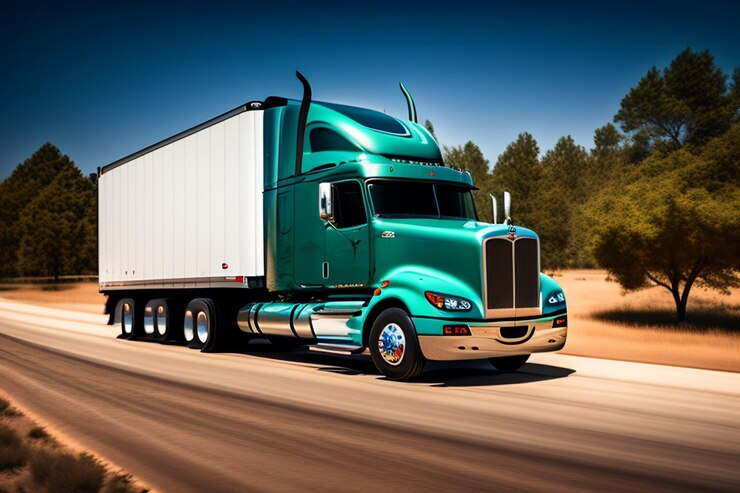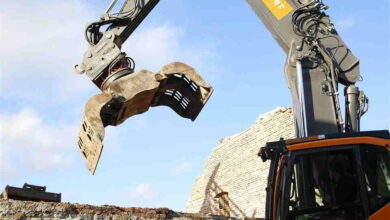What Sets a Dry Van Freight Company Apart in Today’s Market?

Introduction to Dry Van Freight Companies
Dry van freight firms are essential to the logistics sector whose world is characterized by a lot of movement. They usually use enclosed trailers dubbed dry vans. This comes in handy as it protects the load irrespective of the products being carried, be it electronics or clothes.
What sets a dry van freight company apart in today’s market is their commitment to reliability, advanced tracking technology, and a focus on customer service.
Therefore, as companies continue to experience a need for more and more flexibility and speed, dry van freight services have changed and now provide such bespoke solutions that do not allow competition to catch up with them even in this dynamic environment.
Understanding the Dry Van Freight Market
In this regard, one of the most important segments in the dry van freight market supplies almost all types of goods in the most versatile and efficient method possible. The dry van companies normally utilize covered trailers to guard against bad conditions and theft; the carriers specialize in subareas.
It gives them the ability to serve different industries, from retail to manufacturing. Given the competitive setting characterizing the current market, technology integration, tracking systems, and excellence in customer service are factors that make top-performing companies stand out from the rest.
With the continued surge in e-commerce, so is the volume of dry van services, hence making innovations and enhancements in operational efficiency important to carriers if they will have to compete successfully.
Key Characteristics of a Successful Dry Van Freight Company
There are various reasons behind the success of a dry van freight company. First, customer service; attentive to calls and updates, building trust. Second, a well-modern fleet using GPS for tracking increases efficiency in delivery and allows the goods to arrive on time.
Third, safety and regulations prominent in the company’s culture protect the cargo and the company’s reputation. Finally, the capability to leverage technology to ensure efficient operations through automated scheduling and route optimization will go a long way in cost reductions and enhancement of the service.
These properties help the company distinguish itself in a competitive market and ensure longevity with the client base.
Innovative Technologies in Dry Van Freight
On this competitive landscape, the innovation within applied technology has developed the scope for increasing efficiency and customer satisfaction in dry van freight companies. Advanced tracking systems with GPS and IoT provide full visibility to shipments in real time, ensuring seamless tracking of cargo by clients.
Automation in warehouse management includes robotics loading and unloading, which streamlines operations and reduces turnaround time. Data analytics routed them to the most feasible routes and predicted the time of maintenance to minimize delays.
By embracing such advanced tools, the comfort of service reliability and leading in the fast-evolving market-to-meet the demands of modern logistics-can be delivered.
Customer Service Excellence in the Freight Industry
- Responsive Communication: Timely notifications, open lines of communication reduce anxiety for the client.
- Personalized Solutions: Tailored services towards the client’s specific needs increase satisfaction.
- Proactive Problem Solving: Any potential issues, if anticipated before their occurrence, depict reliability.
- Transparent Tracking: Real-time shipment tracking will build confidence and allow for decisions to be made accordingly.
- Dedicated Account Managers: A single point of contact ensures consistency and personalized attention.
Regulatory Compliance and Safety Standards
In this increasingly regulated industry, one cannot grow the dry van freight company without downplaying the company’s commitment to regulatory compliance and safety. Companies that show more attention to adherence to federal and state regulations, such as the FMCSA guidelines, do not only mitigate legal risks but also build their reputation.
Rigorous maintenance schedules, regular driver training, and the implementation of advanced safety technologies such as electronic logging devices further manifest its proactive attitude toward safety.
Additionally, a safety record could even be made more transparent in order to attract those clients who cherish reliability, hence distinguishing the ones who are truly concerned with protecting their cargo and taking care of the welfare of their drivers on the road.

Sustainability Practices in Dry Van Freight
In today’s eco-sensitive market, sustainability practices are sort of a litmus test for the firms engaging in dry van freight. The top companies are increasingly using fuel-efficient technologies like hybrid and electric trucks to minimize carbon emissions.
Many turn to route optimization software that cuts down fuel consumption by ensuring the most efficient routes are taken. Emphasizing the use of recycled materials to minimize packaging and promote a circular economy further enhances their green credentials.
It follows, therefore, that sustainability itself will allow companies more easily to comply with the stipulations of regulations and attract ecologically sensitive clients who seek such a forward-thinking approach to navigation in an increasingly competitive sector.
HMD Trucking focuses on reliable dry van freight services while prioritizing sustainability. Their use of fuel-efficient vehicles and optimized routes helps minimize environmental impact and ensures efficient deliveries.
Competitive Pricing Strategies
- Dynamic Pricing Models: Demand fluctuation adjustments enable the fine-tuning of revenue.
- Volume Discounts: Offer rates are reduced proportionately with bulk shipments, which attracts larger clients and aids in retaining customers longer.
- Transparent Pricing: Clear cost breakdowns build trust and reduce disputes.
- Seasonal Promotions: Seasonal timely discounts during off-peak seasons can spur business when demand wanes.
- Technology Investments: Using state-of-the-art software for real-time pricing analytics increases competitiveness.
Building Strong Partnerships and Networks
- Collaborative Relationships: Delivering synergies by proactive collaboration with shippers and carriers for the benefit of all stakeholders.
- Technology Integration: Providing real-time tracking and communication on supported platforms, greasing the wheels of logistics at every point.
- Industry Alliances: Collaboration with other logistics services providers to offer a greater range and wider scope of services.
- Customer Engagement: Development of a relationship with clients by custom-tailored service and follow-up.
Conclusion: The Future of Dry Van Freight Companies

Looking ahead, the future of dry van freight companies lies in their capability to innovate and adapt to an ever-evolving market. This will be reinforced by the focus on integrating technology-such as real-time tracking and data analytics-to heighten efficiency and the overall customer experience.
Sustainability will also remain key; companies focusing on green initiatives will also meet regulatory requirements but will appeal to eco-conscious customers. Moreover, workforce training investments create a better-skilled labor force that can handle such complications in logistics.
These emerging trends have set dry van freight companies ahead in the competitive landscape, ready to meet the demand of tomorrow’s economy.
HMD Trucking is dedicated to embracing innovation and sustainability in the dry van freight sector. By leveraging advanced technology and investing in workforce training, they enhance efficiency and adapt to market changes, ensuring a top-notch experience for their eco-conscious clients.


